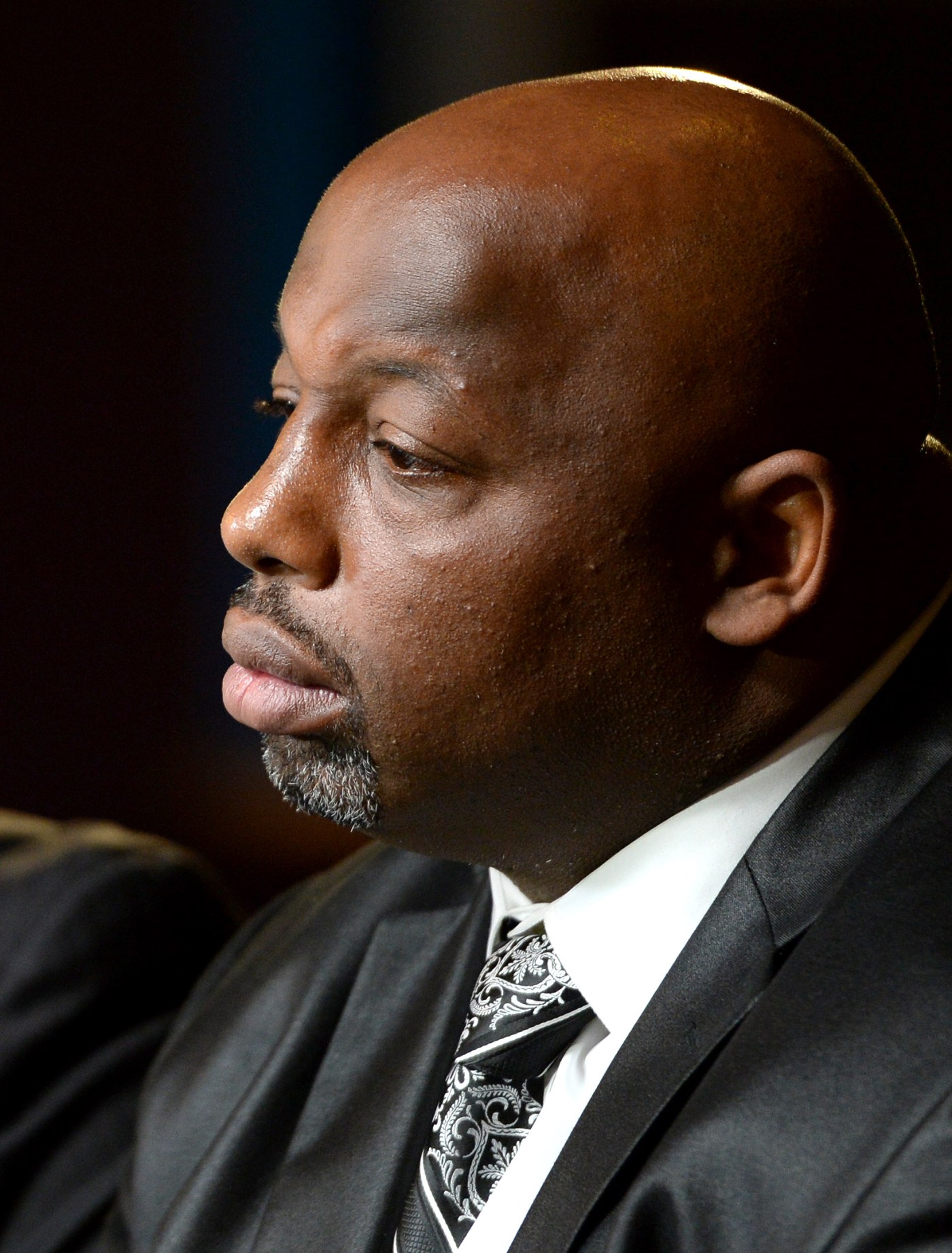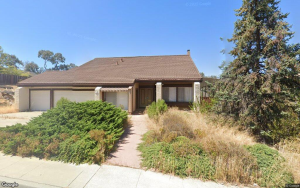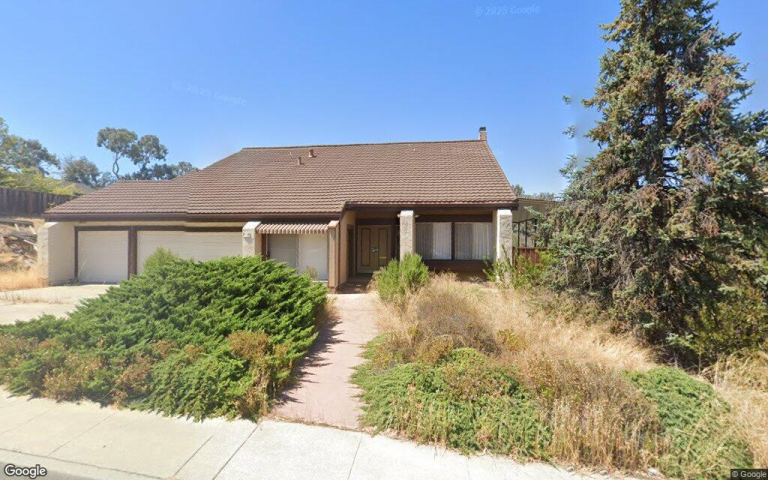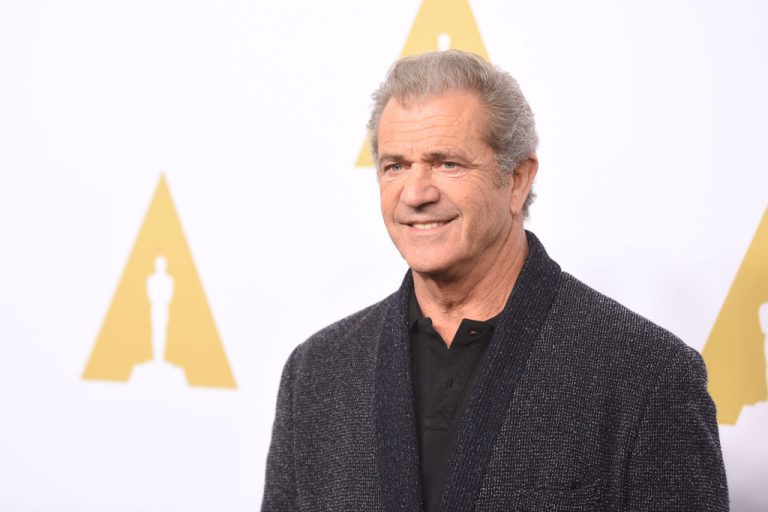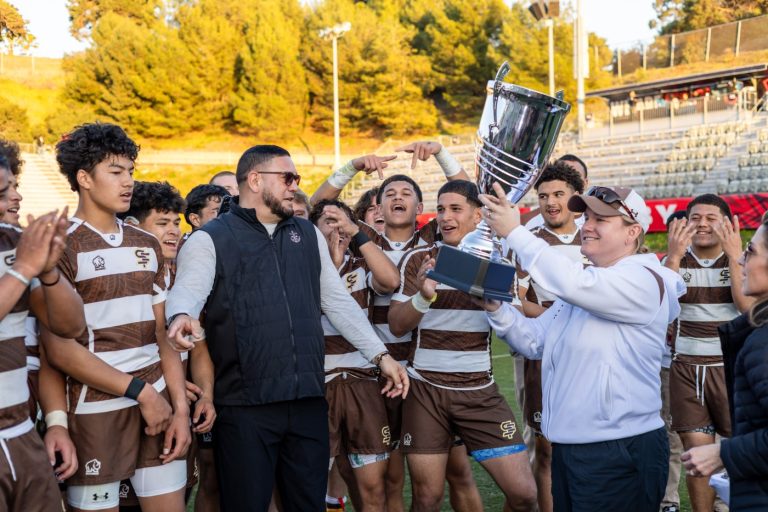SAN JOSE — A judge has granted the prison release of Dana Stubblefield, the former San Francisco 49ers star whose 2020 rape conviction was overturned in December, while authorities weigh a decision to re-file charges.
Stubblefield was not immediately freed following a Friday bail hearing in a San Jose courtroom, though his attorneys expected that to happen within 24 hours. He must first go back to Corcoran State Prison for processing.
Stubblefield was in a San Jose courtroom on Friday after being transported from the Central Valley prison where he was more than three years into a 15-year sentence. However, he was not brought out into the actual courtroom because his attorneys clashed with court deputies over their refusal to let him appear in civilian clothes rather than his prison attire.
The bail hearing was held after more than a month of legal wrangling among Stubblefield’s legal team, the Office of the California Attorney General and Santa Clara County Superior Court Judge Hector Ramon over whether the local court had jurisdiction to consider Stubblefield’s potential release.
Stubblefield’s conviction and sentence were vacated by the Sixth District Court of Appeal in a Dec. 26 ruling that determined the county district attorney’s office violated the state’s Racial Justice Act during closing trial arguments.
The appellate judges took particular issue with an explanation given for why police did not search Stubblefield’s home for a gun, which was claimed to have been used during the alleged 2015 rape of a prospective babysitter at his Morgan Hill home. The prosecutor spoke of a “storm of controversy” that would have arisen from a police search of a famous Black man, which led to the higher court ruling that it allowed jurors to “feel justified or even compelled by misguided notions of racial fairness to overlook or discount the absence of a gun” when determining Stubblefield’s guilt.
After the conviction was invalidated, Stubblefield’s legal team moved to get him a bail hearing to argue for his supervised release while the attorney general’s office, and eventually the district attorney’s office, decided on whether to re-file or dismiss the criminal charges. Judge Ramon ruled Jan. 17 that he had no jurisdiction to hold a hearing, on the grounds that the case was still with the appellate court until it issued a remittitur, or a technical ruling finalizing its decision.
Related Articles
As Oakland corruption scandal rages on, DA tries and fails to dismiss case against political operative who accused ex-DA of shakedown
Man who raped and killed Santa Cruz child when he was a teen reenacts crime during cross-examination
Redwood City man killed in shooting early Thursday morning
Recent Oakland killing was targeted hit by North Richmond’s ‘Swerve Team,’ police say
‘A woman’s worst nightmare’: East Bay murder trial starts with a mother’s final 911 call and her children’s screams
But that cannot happen until Feb. 25 at the earliest, and could take longer if the attorney general’s office decides to challenge the conviction reversal. That prompted the defense team to appeal Ramon’s ruling to the Sixth District court.
On Jan. 24, two days after that appeal was submitted, the higher court issued a ruling stating that it was inclined to side with Stubblefield, and then on Jan. 30, the attorney general’s office agreed that the Superior Court can hold a bail hearing, calling it a “separate, collateral matter” from the appellate decision and remittitur.
The Sixth District court affirmed its intention on Wednesday, issuing an order “commanding respondent court forthwith to vacate its order denying Stubblefield’s motion for release and conduct proceedings to rule on the merits of the motion.”
Stubblefield — who played for the 49ers from 1993 to 2001 as a tackle and was NFL Defensive Player of the Year in 1997 — and his defense team have long argued that he engaged in a paid sexual encounter with his accuser, identified in the appellate ruling as Jane Doe, and that while he initially lied to cover up the tryst, never assaulted her.
This is a developing story. Check back for updates.
